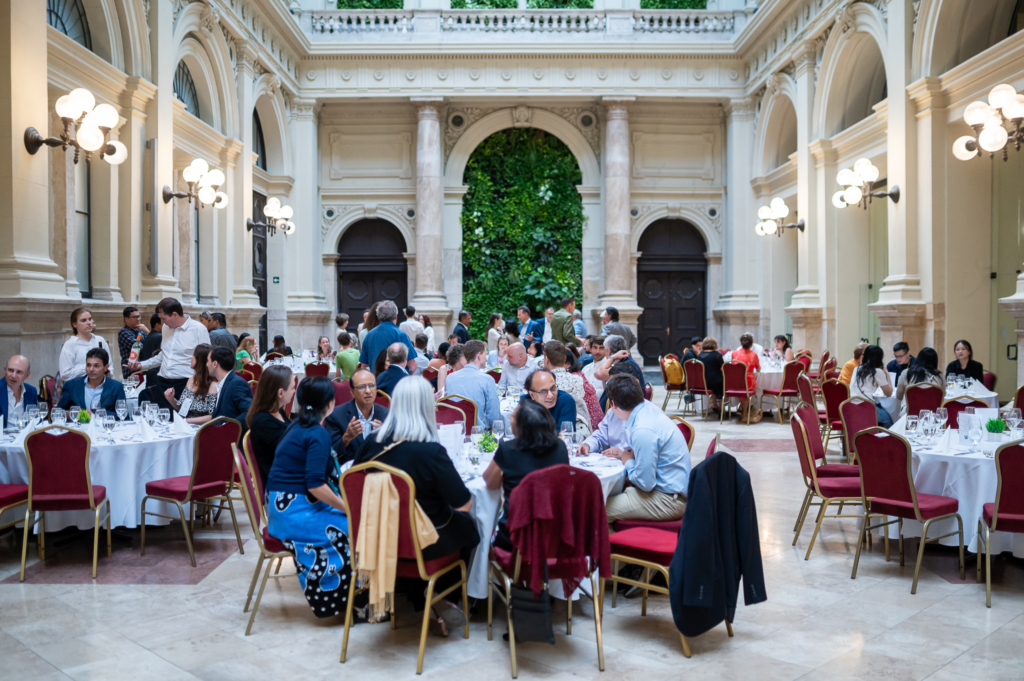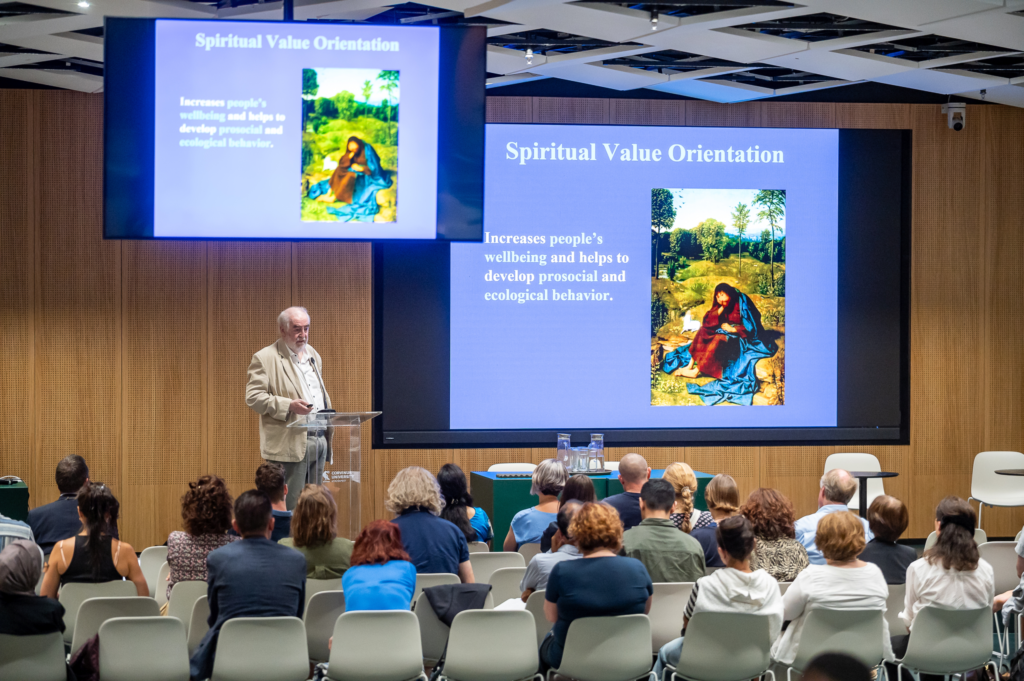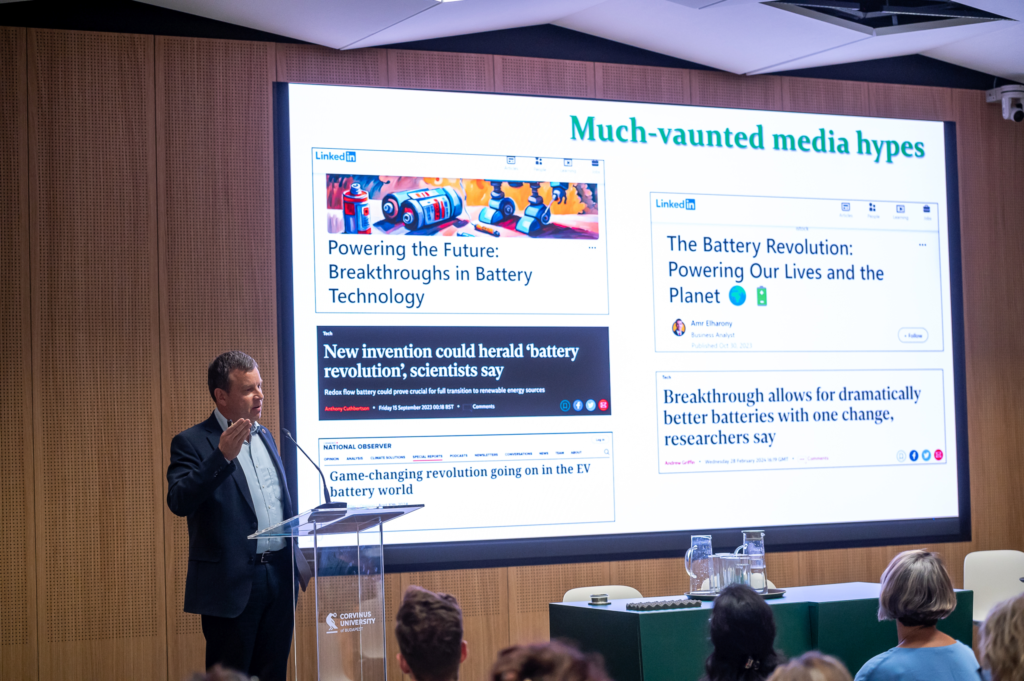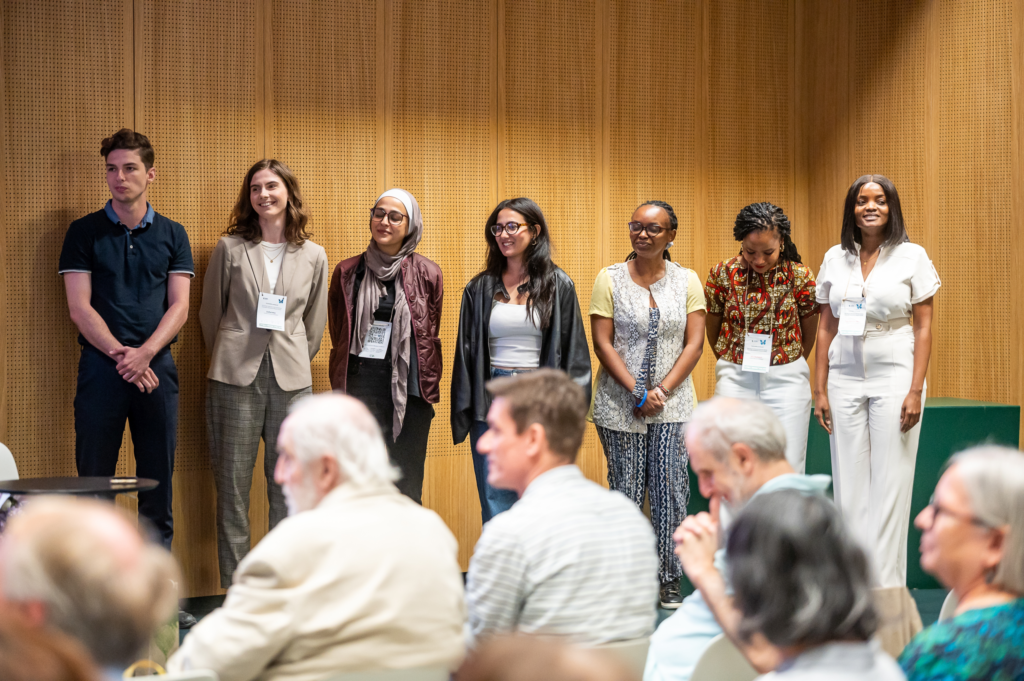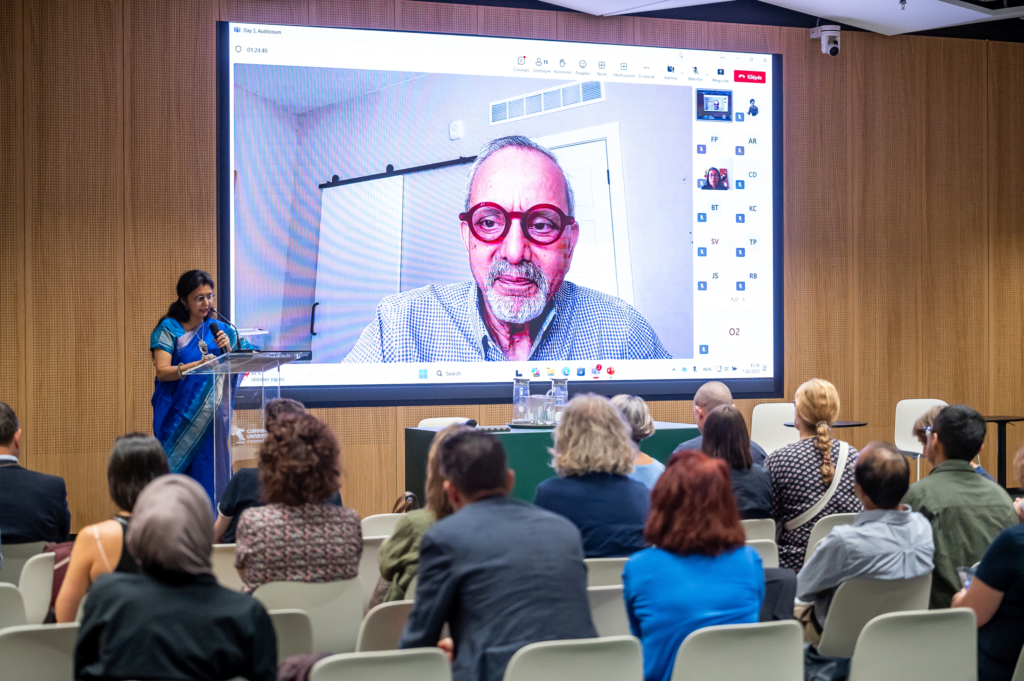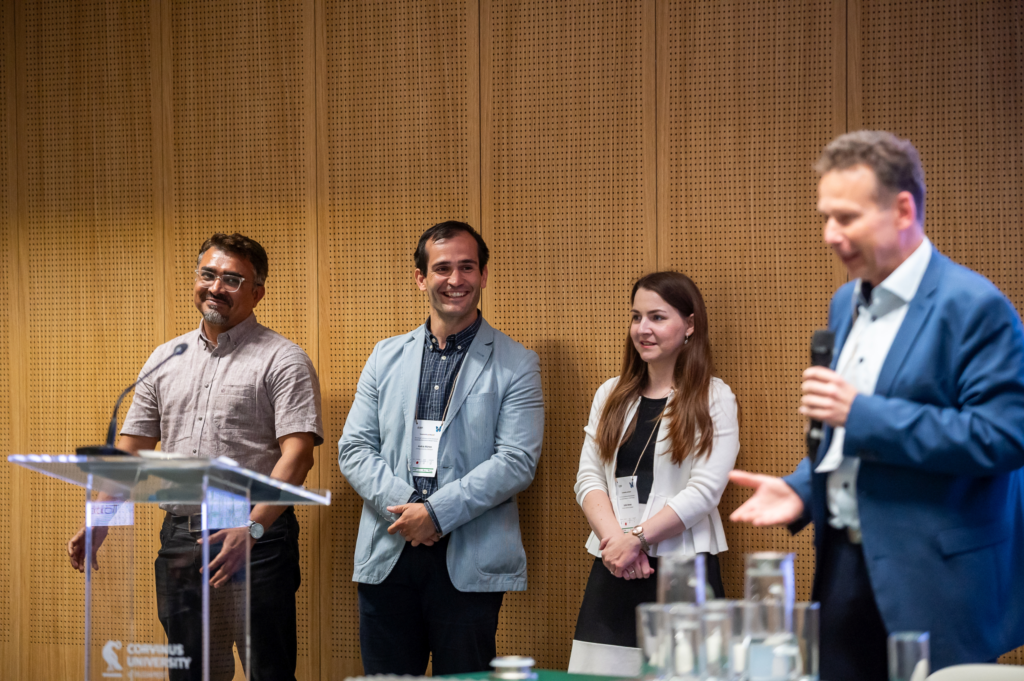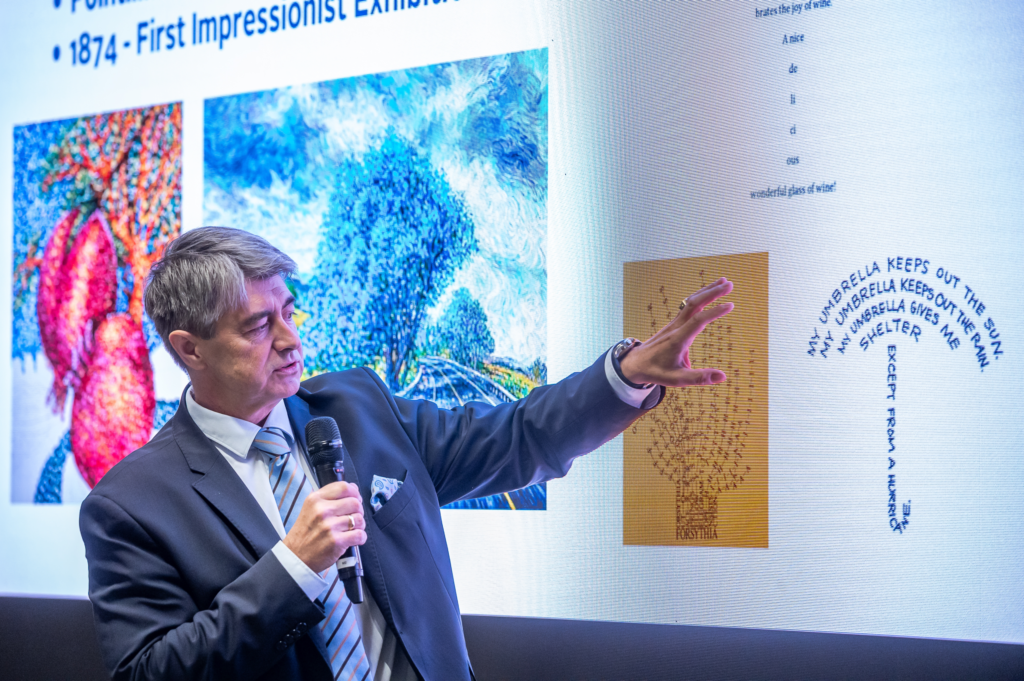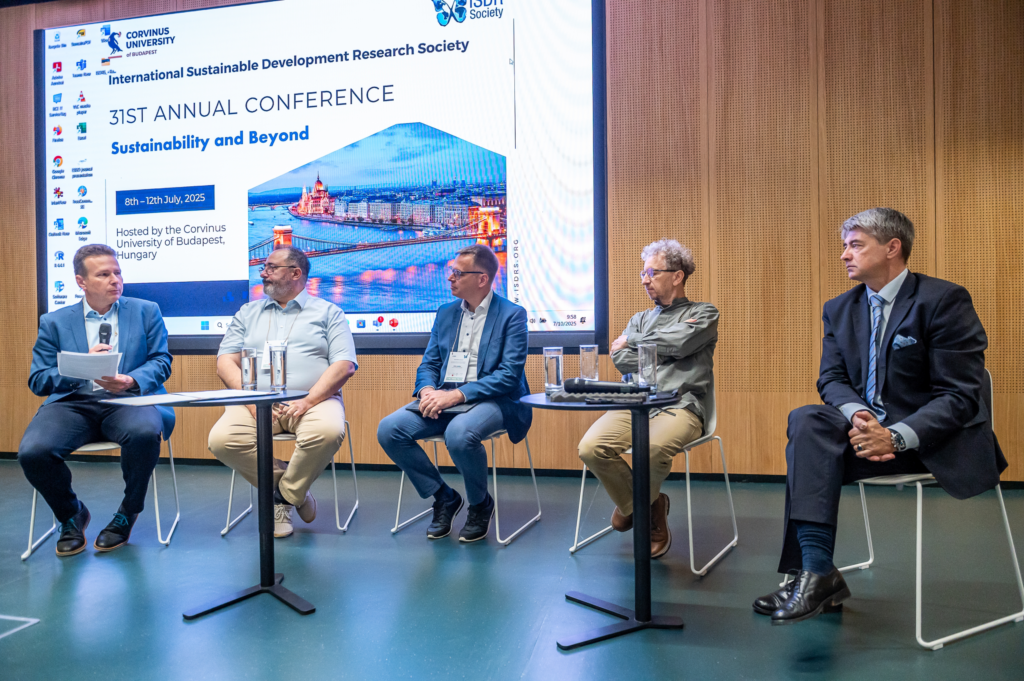ISDRS2025 at Corvinus: AI, Planetary Peace and a Regenerative Economy
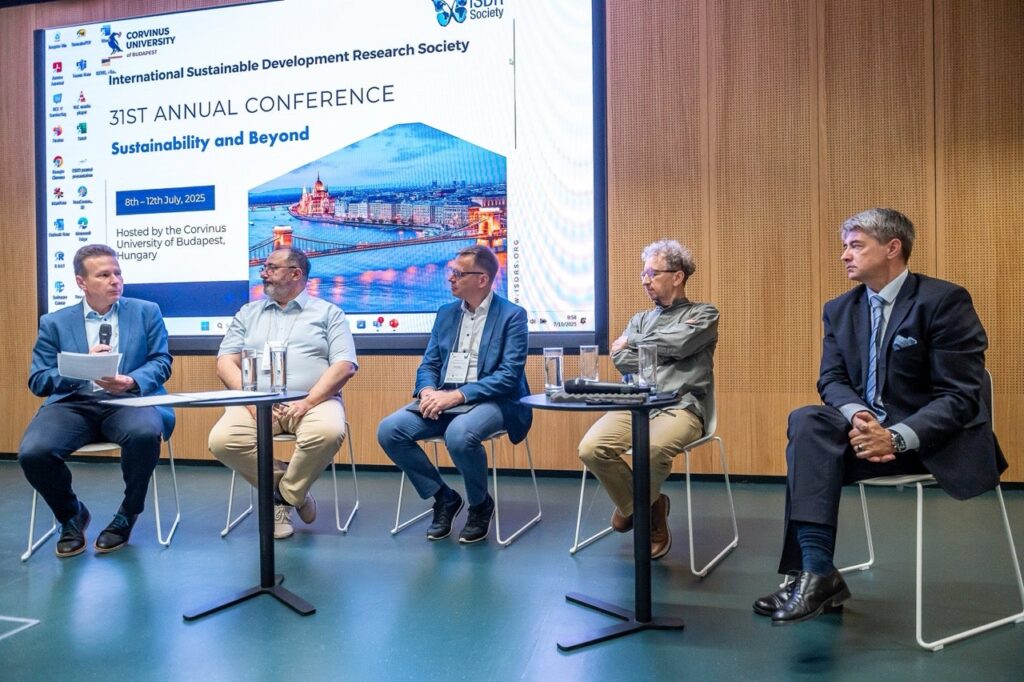
On 10 July 2025, Prof. Dr Péter Baranyi (Corvinus, CIAS) gave a keynote on the nature of artificial intelligence and its role in shaping the future. Prof. Dr Viktor Dörfler (University of Strathclyde, UK and Corvinus) followed with a presentation on how AI influences human learning. In the panel discussion that followed, Dr Csaba Csáki, Dean for AI at Corvinus, and Prof. Dr Attila Jámbor, Head of the Institute of Sustainable Development, joined them to reflect on both the risks and the potential of AI in addressing sustainability challenges.
Several thematic sessions also took place on the second day, exploring topics such as:
- The transformation of food systems
- Circular economy and consumption
- Sustainability communication
- Human rights
- Religious philosophies and sustainability
In the afternoon, the programme featured the launch of the Routledge Handbook of the UN Sustainable Development Goals Research and Policy, led by Prof. Peter Dobers, which took stock of the Agenda 2030 at its halfway point and considered new priorities going forward.
A special workshop, led by Dr Sjors Witjes, explored new methodological approaches to sustainability. This was followed by the ISDRS annual general meeting, where members reviewed the draft of the Budapest Declaration. The day concluded with a formal dinner at Corvinus University’s main building.
The final day of the conference focused on practical challenges and solutions through parallel sessions. Topics included urban and regional resilience, sustainable design and responsible production, related legal and governance issues, the future of work, and the energy transition.
The closing plenary featured three keynote speakers offering different perspectives on the future of sustainability.
Prof. Dr Paul Shrivastava (The Pennsylvania State University, Co-President of the Club of Rome) gave a talk titled Planetary Peace, Science & Sustainability, highlighting that peace is a prerequisite for sustainable development. He introduced the concept of planetary peace and called for global cooperation to achieve sustainability goals.
Prof. Dr László Zsolnai (Corvinus University) in his talk, Planet Positive Economy, stressed the need for new forms of value creation that go beyond carbon neutrality or net-zero strategies and have a positive outcome for the planet. He argued that businesses must prioritise moderation and ethical considerations.
Finally, Prof. Dr András Gelencsér (University of Pannonia) addressed the most pressing issues in sustainability research, stressing the importance of presenting an honest picture of the state of the world—even if we don’t yet have the solutions required for genuine sustainability.
After the plenary, Prof. Dr Gyula Zilahy (President of ISDRS, Corvinus) officially announced the adoption of the Budapest Declaration, aimed at strengthening the community of sustainability researchers and emphasising the role of science in solving global challenges. (The declaration is available at isdrs.org.)
To conclude the conference, Dr Reeti Kulshrestha (ISDRS Vice President) and Dr Stella Emery Santana (FAESA) announced that the next ISDRS conference will be held in July 2026 in Brazil, co-organised by FAESA Centro Universitario and Universidade Federal do Espírito Santo.
